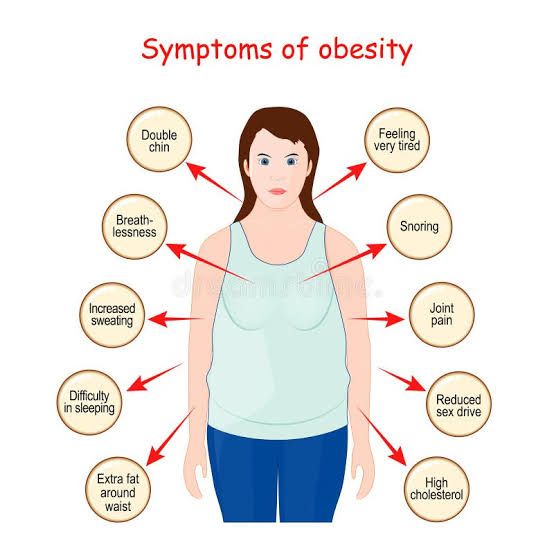
By Nutriworld | Dt. Dipanwita Saha
Every year on 4th March the world observes World Obesity Day to increase the epidemic, its causes, treatment and prevention strategies. This day serves as a reminder that obesity extends beyond weight gain—it is a complex health condition shaped by factors such as lifestyle, genetics, environment, and mental well-being. It is a serious health issue that increases the risk of diabetes, heart disease, joint problems, and more. The theme for World Obesity Day 2025 is “Changing Systems, Healthier Lives,” calling for systemic change to ensure a healthier tomorrow.
Obesity
Obesity is defined as an excess accumulation of body fat, typically measured using Body Mass Index (BMI). A BMI of 30 or higher is classified as obese. However, BMI alone does not always reflect overall health, as muscle mass and fat distribution also play a role. Obesity is a rising health concern in India, affecting both adults and children. In India, the rate of obesity has risen from 1.2 per cent in 1990 to 9.8 per cent in 2022 among women and from 0.5 per cent to 5.4 per cent in men.
Causes of Obesity
Obesity is a result of multiple factors, including:
1.Unhealthy Diet – Consuming excessive processed foods, refined sugars, and unhealthy fats contributes to weight gain.
2.Sedentary Lifestyle – Lack of physical activity leads to excess calorie storage as fat.
3.Genetics – Family history can increase susceptibility to obesity.
4.Hormonal Imbalance – Conditions like hypothyroidism and PCOS can lead to weight gain.
5.Emotional Eating and Stress – Many people overeat due to stress, anxiety, or emotional triggers.
6.Lack of Sleep – Poor sleep disrupts hunger hormones, leading to increased cravings.
7.Medications – Certain medications like steroids and antidepressants can contribute to weight gain.
Symptoms of Obesity
Obesity doesn’t just affect appearance—it has serious health implications, including:
- Shortness of breath and fatigue
- Increased sweating
- Joint pain and mobility issues
- High blood pressure and cholesterol levels
- Increased risk of Type 2 diabetes
- Sleep apnea and snoring
- Mental health issues such as depression and low self-esteem

5 common myths about obesity
Myth 1: Obesity is solely a result of poor lifestyle choices.
Fact: While diet and physical activity are significant factors, obesity is a complex disease influenced by various elements, including genetics, environment, and psychological factors.
Myth 2: Skipping meals is an effective strategy for weight loss.
Fact: Skipping meals can lead to overeating later and may slow metabolism, making weight management more challenging.
Myth 3: Obesity is always hereditary
Fact: When it comes to obesity, genetic factors play an important role. However, it doesn’t mean that inheriting a few traits makes one obese. Obesity occurs in families rarely according to a clear inheritance pattern caused by variations in a single gene. It seems most obesity is multifactorial, which is the result of complex interactions among many genes and environmental factors.
Myth 4 : Eating less will solve the problem of Obesity
Fact: One of the main reasons for obesity is consuming extra calories than the body requires for an extended period. Most common steps taken towards controlling obesity are lowering calorie intake, increasing physical activities or both. Though diet and exercise are important aspects, several other factors also play a crucial role in obesity. These factors are inadequate sleep, psychological stress, chronic pain, endocrine (hormone) disruptors, and the use of certain medications. It is unfortunate that people forget about these often.
Myth 5: Exercising will fix Obesity
Fact: Exercise has many health benefits; however, weight loss isn’t really one of them. Exercise only helps 3% to 5% with losing weight. Exercise is important for maintaining weight once you shed a few kilos. Exercise can even be dangerous for obese patients, hence it’s not always primarily part of a treatment plan. For some obese people, exercise isn’t suitable until they lose a certain amount of weight.
Tips to Manage Diet and Obesity
- Prioritize Nutrient-Dense Foods – Focus on whole, unprocessed foods like vegetables, fruits, lean proteins, and whole grains to support satiety and overall health.
- Control Portion Sizes – Use smaller plates, measure portions, and eat mindfully to prevent overeating and maintain a balanced calorie intake.
- Stay Hydrated – Drinking enough water throughout the day can help regulate appetite and prevent unnecessary snacking.
- Limit Sugary and Processed Foods – Reduce consumption of high-calorie, low-nutrient foods such as sugary drinks, fried items, and processed snacks.
- Eat Balanced Meals – Include a combination of protein, healthy fats, and fiber in every meal to keep energy levels stable and reduce cravings.
- Avoid Skipping Meals – Regular meals help maintain blood sugar levels and prevent binge eating later in the day.
- Plan Meals in Advance – Preparing meals ahead of time reduces the temptation of unhealthy choices and supports portion control.
- Increase Physical Activity – Combine strength training and cardio exercises to boost metabolism and promote sustainable weight management.
- Monitor Eating Habits – Keeping a food journal or using apps can help track food intake, identify patterns, and make necessary adjustments.
- Practice Stress Management – Stress can trigger emotional eating, so incorporating relaxation techniques like meditation, deep breathing, or hobbies can help regulate food choices.
Conclusion
Obesity is more than just a number on the scale—it is a complex condition influenced by genetics, environment, lifestyle, and metabolism. Understanding obesity beyond weight alone allows for a more holistic approach to health, emphasizing balanced nutrition, regular physical activity, and mindful habits. Sustainable changes, rather than quick fixes, are key to long-term well-being. By shifting the focus from just weight loss to overall health improvement, individuals can develop a healthier relationship with food, movement, and their bodies. True wellness comes from making informed choices that support both physical and mental health.
FAQs
1.What is obesity?
Obesity is a chronic condition characterized by excessive body fat accumulation that can impact overall health. It is typically measured using the Body Mass Index (BMI), though other factors like body composition and metabolic health are also important.
2. Is obesity only caused by overeating?
No, obesity is influenced by multiple factors, including genetics, metabolism, hormonal imbalances, lifestyle, environment, and mental health. While diet plays a role, it is not the sole cause.
3. Can someone be overweight but still healthy?
Yes, some individuals with a higher BMI may have good metabolic health, while others with a “normal” weight may have underlying health risks. Health assessments beyond weight, such as cholesterol levels, blood sugar, and blood pressure, provide a more complete picture.
4. What health risks are associated with obesity?
Obesity increases the risk of conditions such as type 2 diabetes, heart disease, high blood pressure, joint problems, sleep apnea, and certain cancers. It can also impact mental health and overall quality of life.
5. Is BMI a reliable indicator of obesity?
BMI is a general screening tool but does not differentiate between muscle mass and fat. Other measurements like waist circumference, body fat percentage, and metabolic markers provide a more accurate assessment of health.

Hello! I'm Dietician Dipanwita Saha, a clinical dietitian and the founder of Nutriworld. I have a true passion for health and nutrition, and I've spent my career helping people improve their health through personalized diet plans based on science. Whether you're recovering from an illness, managing a health condition, or just striving for a balanced lifestyle, I believe that proper nutrition is essential for healing and overall well-being.
I believe that good nutrition can transform your health — and I’m here to guide you through it. If you’ve been struggling with weight issues, chronic health conditions, or recovery diets, I am here to help.
I OFFER :
I offer one-on-one diet consultations to help you achieve your health goals—whether it’s weight management, disease recovery, or overall wellness. My approach focuses on science-backed nutrition and practical meal plans that fit your lifestyle.
If you want expert guidance on nutrition and wellness, check out my online courses. I offer structured programs that cater to different health needs.
For more practical diet tips, healthy recipes, and expert insights, subscribe to my YouTube channel. I regularly upload videos to simplify nutrition and help you make informed food choices.



